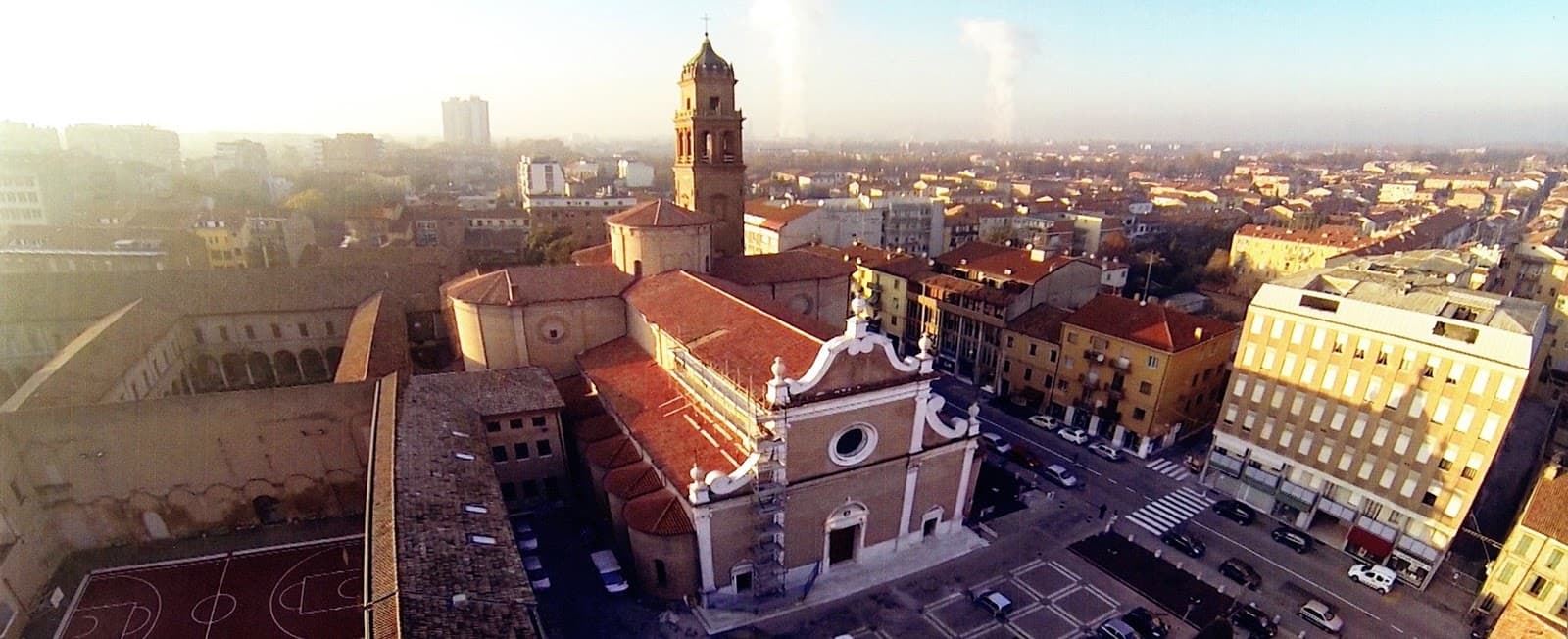
Tempio di San Benedetto
A resilient Renaissance church in Ferrara, rebuilt multiple times, featuring a unique sloping bell tower and vibrant stained glass.

Highlights
Must-see attractions
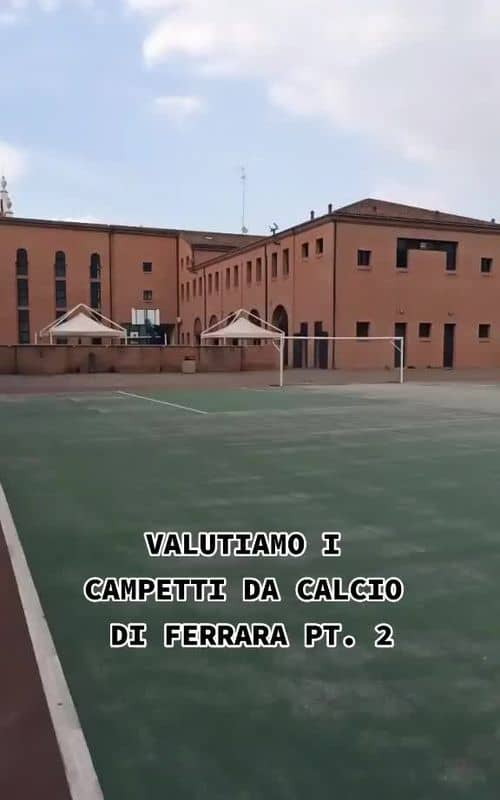
Social
From TikTok & Reddit
Best Time
Fewer crowds for reflection

Tempio di San Benedetto
Best Time
Fewer crowds for reflection

Highlights
Must-see attractions
A resilient Renaissance church in Ferrara, rebuilt multiple times, featuring a unique sloping bell tower and vibrant stained glass.
"A modern, bright church with a unique history of reconstruction and a notable bell tower."
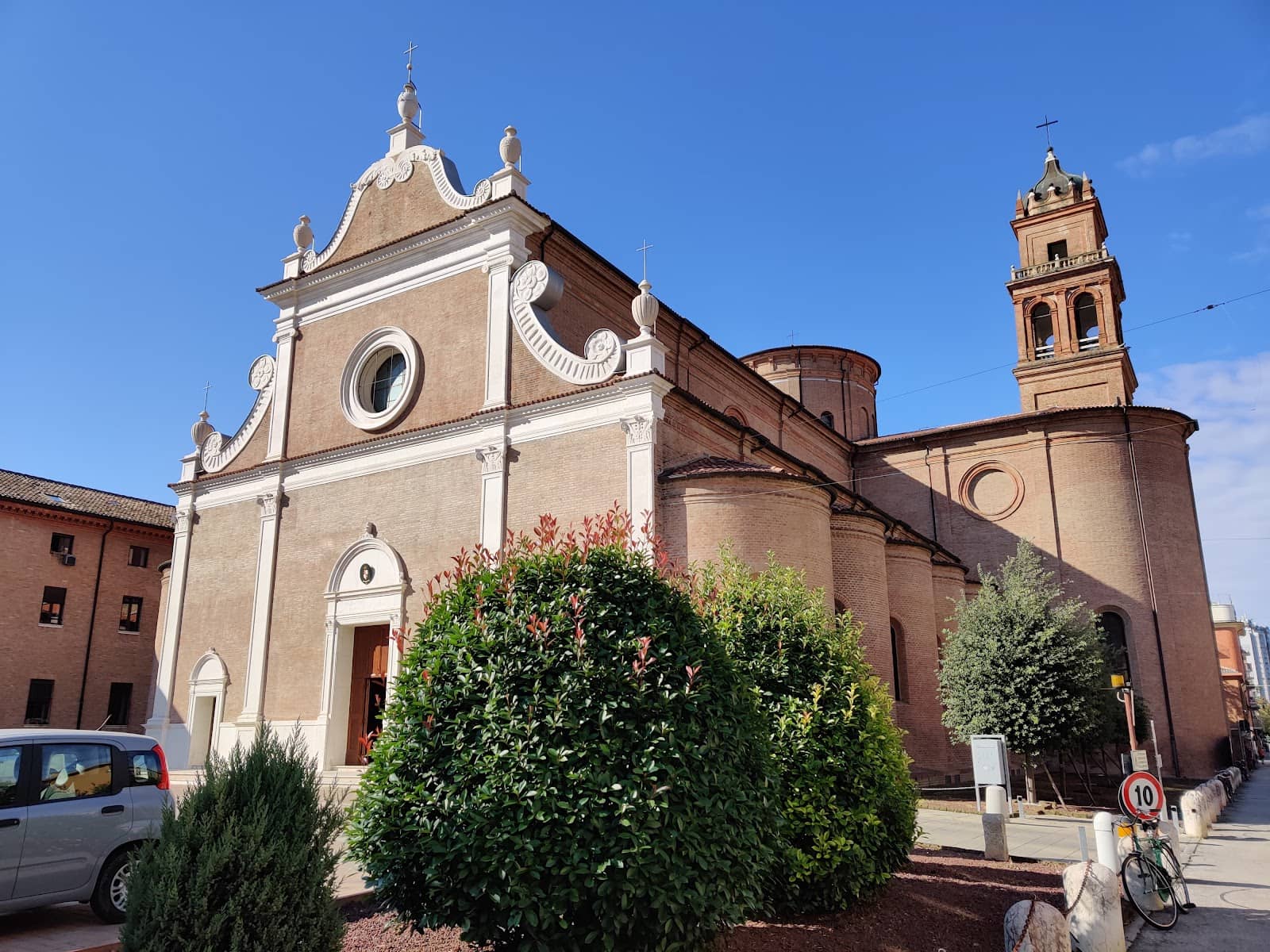
📸 Appreciate the Light
The modern interior is best appreciated with good natural light, especially for the stained glass windows. :camerawithflash:
📜 Read Up on History
Understanding its reconstruction after WWII bombings and other events enriches the visit. :scroll:
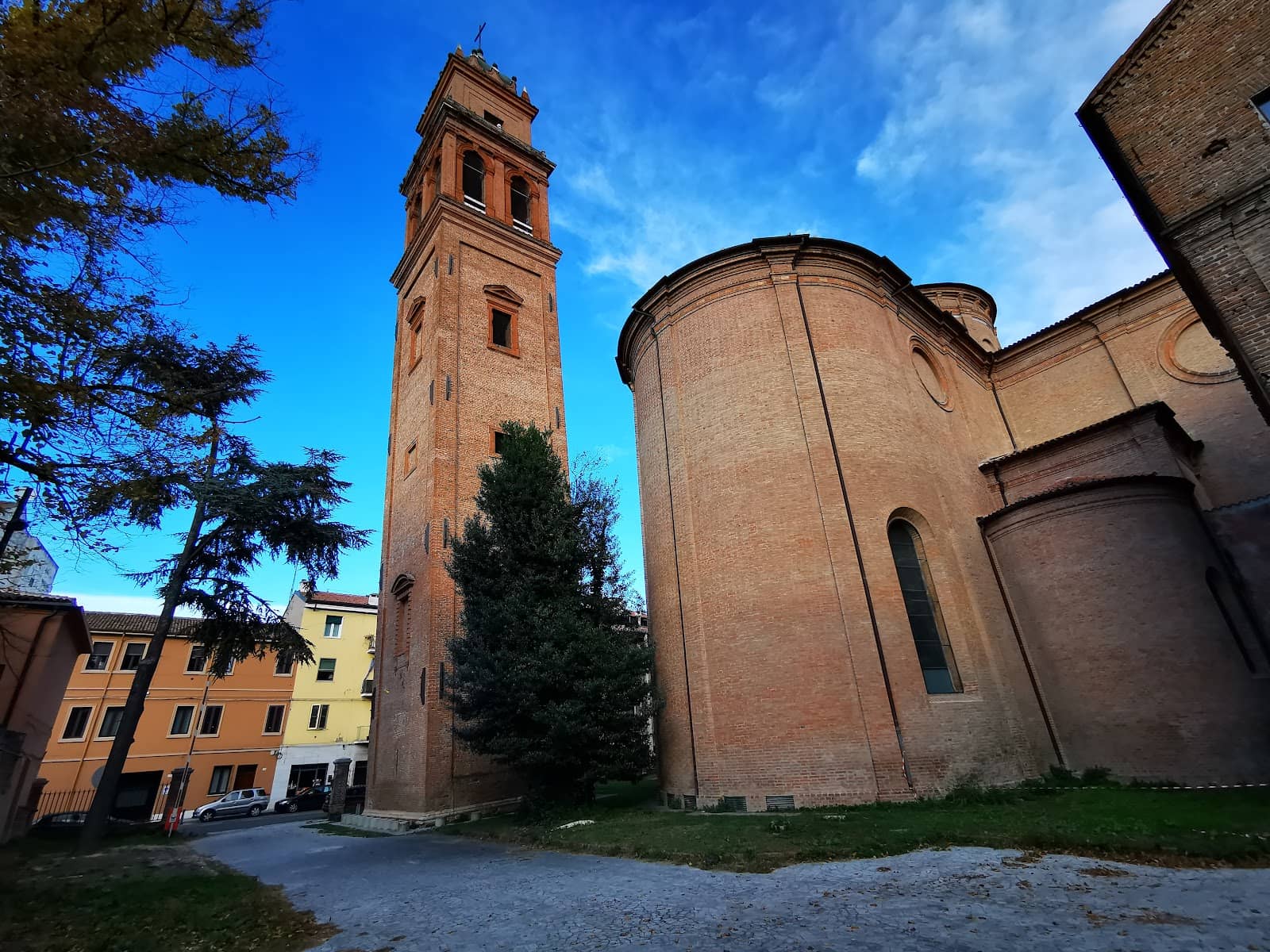
Highlights
Discover the most iconic attractions and experiences

Bell Tower
Exterior
A remarkable 17th-century bell tower with a notable slope, stabilized by modern engineering.

Stained Glass Windows
Interior
Lovely and luminous stained glass windows that add a touch of color to the otherwise minimalist interior.
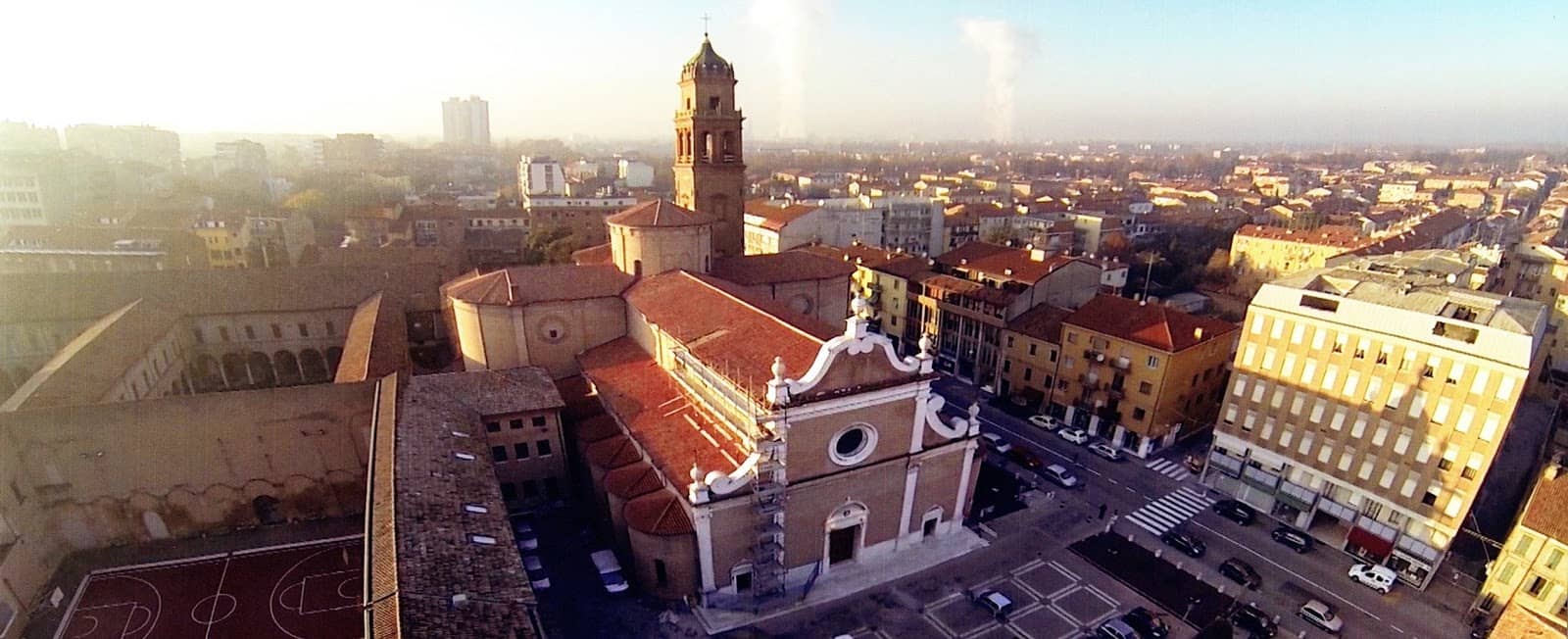
Ariosto's Burial Plaque
Interior
A historical marker commemorating the initial burial site of the renowned poet Ludovico Ariosto.
Plans like a pro.
Thinks like you
Planning Your Visit
Timing Your Visit
Understanding Its History
Best Times
Insider Tips
from TikTok, Instagram & Reddit
📸 Appreciate the Light
The modern interior is best appreciated with good natural light, especially for the stained glass windows. :camerawithflash:
📜 Read Up on History
Understanding its reconstruction after WWII bombings and other events enriches the visit. :scroll:
🚶 Exterior Views
The exterior brickwork and bell tower are significant features, even if interior access is limited. :building_construction:
Tips
from all over the internet
📸 Appreciate the Light
The modern interior is best appreciated with good natural light, especially for the stained glass windows. :camerawithflash:
📜 Read Up on History
Understanding its reconstruction after WWII bombings and other events enriches the visit. :scroll:
🚶 Exterior Views
The exterior brickwork and bell tower are significant features, even if interior access is limited. :building_construction:
What Travellers Say
Reviews Summary
Visitors find the Tempio di San Benedetto to be a large, bright, and modern church, though some note its minimalist interior due to post-war reconstructions. The stained glass windows are appreciated, and the historical significance, particularly the bell tower and Ariosto plaque, adds to its appeal. It also functions as a well-organized parish and community center.
"Modern. The church is large and bright and is overall a beautiful church, although in my opinion it suffers a bit too much from the fact that it was rebuilt in the modern era after the bombings of World War II. The exterior is still made of exposed brick, while the interior is rather simple, very white, and few works of art have survived, although the stained glass windows located in various areas are lovely. It is divided into three naves, and the two side aisles contain many simple chapels with altars. Worthy of historical note is the plaque that commemorates Ludovico Ariosto's initial burial in this church, his remains later moved to another location. Also worthy of note is the bell tower, built in 1621/1646, as a plaque outside states."
Roberto Bruno
"The church is very beautiful, but unfortunately its history has been marked by misfortune: the 1943 bombing, the 2006 fire, and finally the 2012 earthquake, which forced it to close until (hopefully) Easter 2019 for renovations. Its bell tower is remarkable, with a slope of just over 10%, but thanks to reinforced concrete piles planted in the ground, it remains in place.
The exterior can only be visited."
Luca Pampolini
"The church was built between 1496 and 1553 by the Benedictines who, due to malaria, abandoned Pomposa, and was consecrated in 1563. The bell tower was built later, in 1621. During the period of the Cisalpine Republic it was used as a barracks and stable then was reopened for worship in 1812, after a restoration financed by the sale of the churches suppressed of San Romano, San Pietro and All Saints. The monastery, built later, was entrusted to the Salesians who in 1912 established a college named after San Carlo.
In 1944 the temple was hit and seriously damaged by English bombing (28 January and 5 June). It was entirely rebuilt respecting the original design and consecrated on 20 May 1954 by the bishop of Ferrara Monsignor Ruggero Bovelli. The following day it was opened for worship with a solemn mass celebrated by Cardinal Alfredo Ildefonso Schuster and with the presence of the undersecretary for public works Emilio Colombo.
In the years 1999-2000 the new Salesian oratory was built and the bell tower was completely restored. In 2001, an organ coming from the church of the Sacred Heart of Bologna was installed.
On June 15, 2007, a large fire broke out in the central apse of the church, probably due to arson, which damaged the interior of the church. The damage concerned the structures, the systems, the organ and the works of art. Most of the furnishings and furnishings of the cult were lost.
The community repaired the damage thanks to the funds raised through various initiatives but, with the 2012 earthquake, the building was closed again for restoration. On 6 April 2019 the church was reopened for worship again."
Alessio Burtone
What People Like
What People Dislike
Frequently Asked Questions
🚇 🗺️ Getting There
The Tempio di San Benedetto is located in Ferrara, Italy. It's accessible by public transport within the city, with local buses often stopping nearby. If driving, be aware of ZTL (limited traffic zones) in the historic center. Parking might be available in designated lots a short walk away.
Yes, it's a prominent church in Ferrara. It's often mentioned in local guides and can be easily located using GPS or by asking locals for directions to the 'Chiesa di San Benedetto'.
Ferrara is a very walkable and bike-friendly city. Renting a bike is a popular and enjoyable way to explore, and many attractions, including San Benedetto, are easily reachable by bicycle.
🎫 🎫 Tickets & Entry
Generally, entry to churches for worship is free. However, specific exhibitions or guided tours might have a fee. It's always best to check for any special events or access requirements before your visit.
Opening hours for churches can vary, especially due to religious services. It's advisable to check the official parish website or local listings for the most up-to-date information on when the church is open to visitors.
Access to the bell tower may require a separate ticket or be part of a guided tour. Information regarding access and any associated costs should be sought from local tourist information or the church administration.
Yes, the exterior of the church and its bell tower are always accessible for viewing and photography, even when the interior is closed for services or renovations.
🎫 🧭 Onsite Experience
The church was originally built in the Renaissance style but has undergone significant modern reconstructions. The interior is notably minimalist and white, a result of post-war rebuilding, contrasting with its historic exterior brickwork.
While many original artworks were lost due to historical events like bombings and fires, the church features beautiful stained glass windows. A plaque commemorating Ludovico Ariosto's initial burial is also a significant historical point of interest.
The bell tower is a notable feature, known for its slope. While exterior viewing is common, access to climb the tower might be restricted or available only through specific tours.
The plaque marks the original burial site of the famous Italian Renaissance poet Ludovico Ariosto. His remains were later moved to another location, but this plaque serves as a historical reminder of his connection to the church.
The interior is described as large, bright, and very white, with a simple design. It's divided into three naves, with side aisles containing chapels. The stained glass windows are a key visual element.
🍽️ 🍽️ Food & Dining
Yes, the church is located in Ferrara, a city with a rich culinary scene. You'll find numerous trattorias, pizzerias, and cafes in the surrounding streets offering local Emilian cuisine.
Don't miss trying 'cappellacci di zucca' (pumpkin-filled pasta), 'salama da sugo' (a cured pork sausage), and 'pasticcio di maccheroni' (a sweet and savory pasta pie).
📸 📸 Photography
Capture the unique slope of the bell tower from various angles. The exterior brickwork offers a classic architectural shot. Inside, focus on the light filtering through the stained glass windows for vibrant, colorful images.
Photography is generally permitted inside churches for personal use, but it's always respectful to avoid flash and be mindful of ongoing services. Check for any specific signage regarding photography restrictions.
Late morning or early afternoon can be ideal for capturing the interior with good natural light illuminating the stained glass. The exterior is photogenic throughout the day, with golden hour offering warm light.
For Different Travelers
Tailored advice for your travel style
👨👩👧 Families with Kids
The large internal courtyard provides ample space for kids to play sports like soccer, basketball, and volleyball. The parish also organizes popular summer 'Grest' programs and other initiatives specifically designed for young people, making it a hub for family-friendly activities throughout the year.
🏛️ History Buffs
Key points to explore include the historical plaque of Ludovico Ariosto's burial, the 17th-century bell tower with its unique engineering, and the architectural evolution from its original design to its post-war modern interior. Understanding these phases provides a rich context for appreciating the church's enduring presence in Ferrara.
📸 Photographers
Inside, the stained glass windows are a highlight, especially when illuminated by natural light, creating vibrant and colorful shots. The minimalist interior, while stark, can also be used for dramatic architectural photography, focusing on lines and light. Consider visiting during different times of day to capture varying light conditions.
Deep Dives
In-depth insights and expert knowledge
A History of Resilience
However, its modern history is punctuated by destruction and reconstruction. In 1944, it was severely damaged by English bombings, leading to a complete rebuilding that respected the original design and was reconsecrated in 1954. Further setbacks included a large fire in 2007 that damaged the interior, organ, and artworks, followed by the 2012 earthquake which forced another closure for extensive renovations. The church was finally reopened for worship in April 2019, a testament to its enduring spirit.
This continuous cycle of damage and restoration means the interior presents a modern, minimalist aesthetic, primarily white, with few surviving original artworks. Yet, the stained glass windows offer vibrant color, and the historical significance of the Ariosto burial plaque and the unique bell tower remain.
Architectural Features and Notable Elements
Inside, the church is characterized by its spaciousness and bright, predominantly white decor. It is divided into three naves, with the two side aisles housing numerous simple chapels. While much of the original art was lost, the stained glass windows are a significant visual element, casting colorful light throughout the space.
A key historical point of interest is the plaque commemorating Ludovico Ariosto's initial burial. Though his remains were later moved, this marker connects the church to the celebrated Italian Renaissance poet. The presence of a modern organ, installed in 2001, also adds to the church's evolving character.
Community Hub and Parish Life
The parish is described as well-kept and organized, acting as an excellent meeting and aggregation point for citizens of all age groups. It actively engages children, teenagers, and adults through numerous afternoon initiatives aimed at young people. The large internal courtyard offers facilities for various sports, including soccer, basketball, and volleyball, fostering a sense of community and healthy activity.
Furthermore, the parish organizes well-structured summer programs, such as 'Grest' (summer holiday activities for children) and summer holidays in the mountains, providing enriching experiences for the younger members of the community. This focus on social engagement and youth development highlights the church's role as more than just a place of worship.




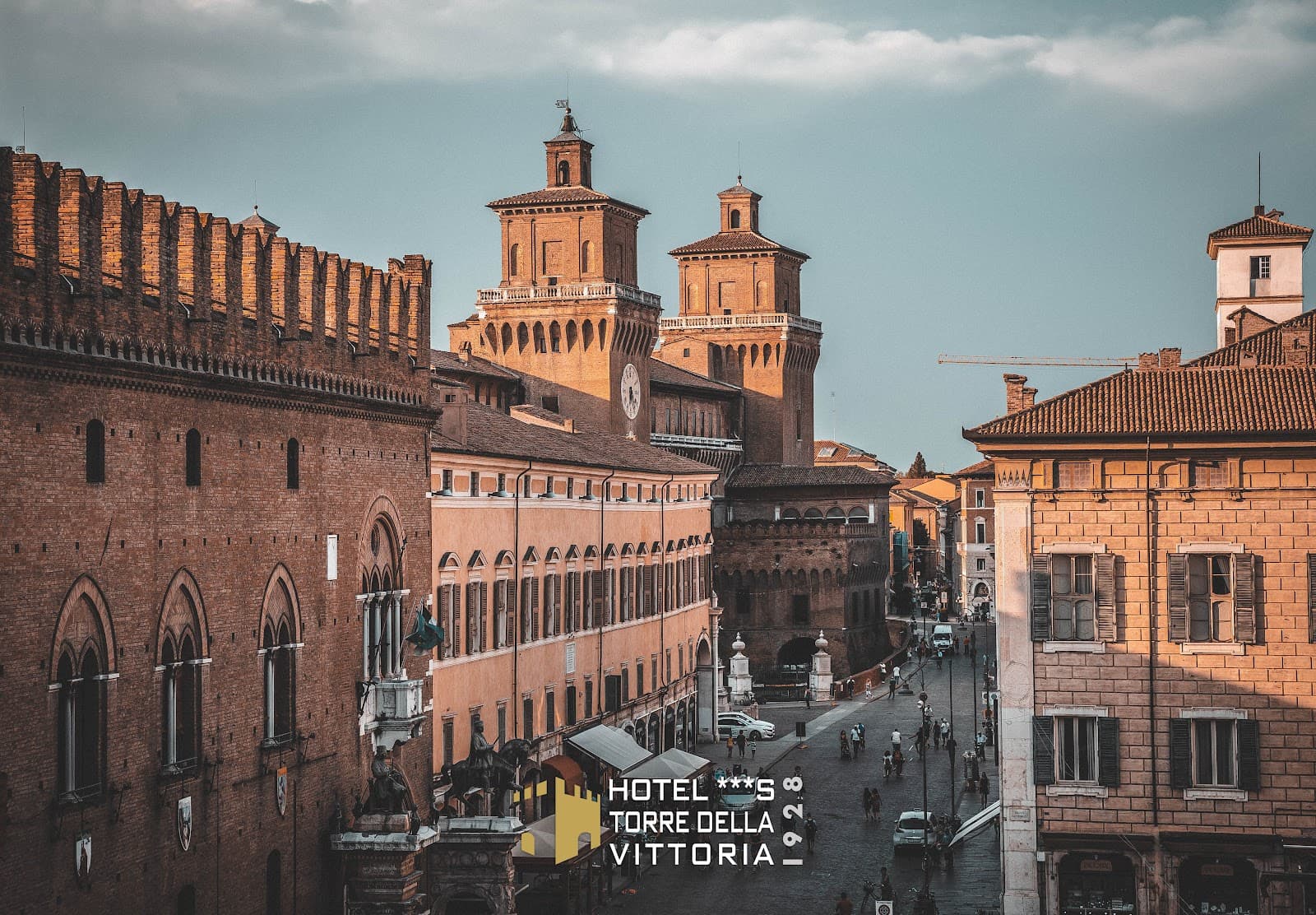

Social
from TikTok, Instagram & Reddit